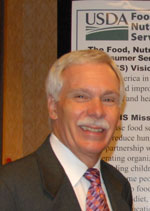 Tampa, Florida could become a major port for alternative fuels… just in time as an area just up the road is expanding its potential to produce biodiesel.
Tampa, Florida could become a major port for alternative fuels… just in time as an area just up the road is expanding its potential to produce biodiesel.
Yesterday, I told you about how Groveland is expanding its biodiesel production capabilities and hopes to rival Houston, Texas in terms of green fuel refining. Now, GreenHunter Energy Inc. of Houston might be building a $70 million facility to store and produce biofuels at the Port of Tampa and has paid $1 million to lease a 22-acre site, according to this story in the Tampa Tribune:
The project would give GreenHunter a “foothold in a deep-water port that handles over half of the transportation fuel used in the state of Florida,” GreenHunter Chairman and CEO Gary Evans said.
The publicly held energy company owns and operates the nation’s largest biodiesel plant, a 105 million-gallon-per-year refinery in Houston.
The company is also developing six wind-power projects in Montana, California and New Mexico. In addition, it recently paid $2.5 million for a 14-megawatt power plant near Tallahassee that uses wood waste to generate electricity.




 It’s kind of a good news/bad news thing.
It’s kind of a good news/bad news thing. Some locally grown mustard seeds could soon be powering buses in Monterey County, California.
Some locally grown mustard seeds could soon be powering buses in Monterey County, California. An area in Central Florida already touted as a mecca for biodiesel production could be getting another biodiesel plant.
An area in Central Florida already touted as a mecca for biodiesel production could be getting another biodiesel plant.
 A
A  Over the past two weeks, key energy advisors to the McCain and Obama presidential campaigns have shared their views on ethanol with
Over the past two weeks, key energy advisors to the McCain and Obama presidential campaigns have shared their views on ethanol with  Schafer said the government could provide up to $25 million per company to refinance through a “guaranteed loan-type program for operating capital.” These types of loans are available through the Rural Development’s existing Business and Industry (B&I) Loan Guarantee Program. Under that program, the loan must be secured by a private lending agency – USDA does not make a direct loan.
Schafer said the government could provide up to $25 million per company to refinance through a “guaranteed loan-type program for operating capital.” These types of loans are available through the Rural Development’s existing Business and Industry (B&I) Loan Guarantee Program. Under that program, the loan must be secured by a private lending agency – USDA does not make a direct loan. Another nearly 1,400 megawatts (MW) of wind energy has been installed during the last three months, putting the U.S. wind energy industry on a record-setting pace again this year.
Another nearly 1,400 megawatts (MW) of wind energy has been installed during the last three months, putting the U.S. wind energy industry on a record-setting pace again this year.